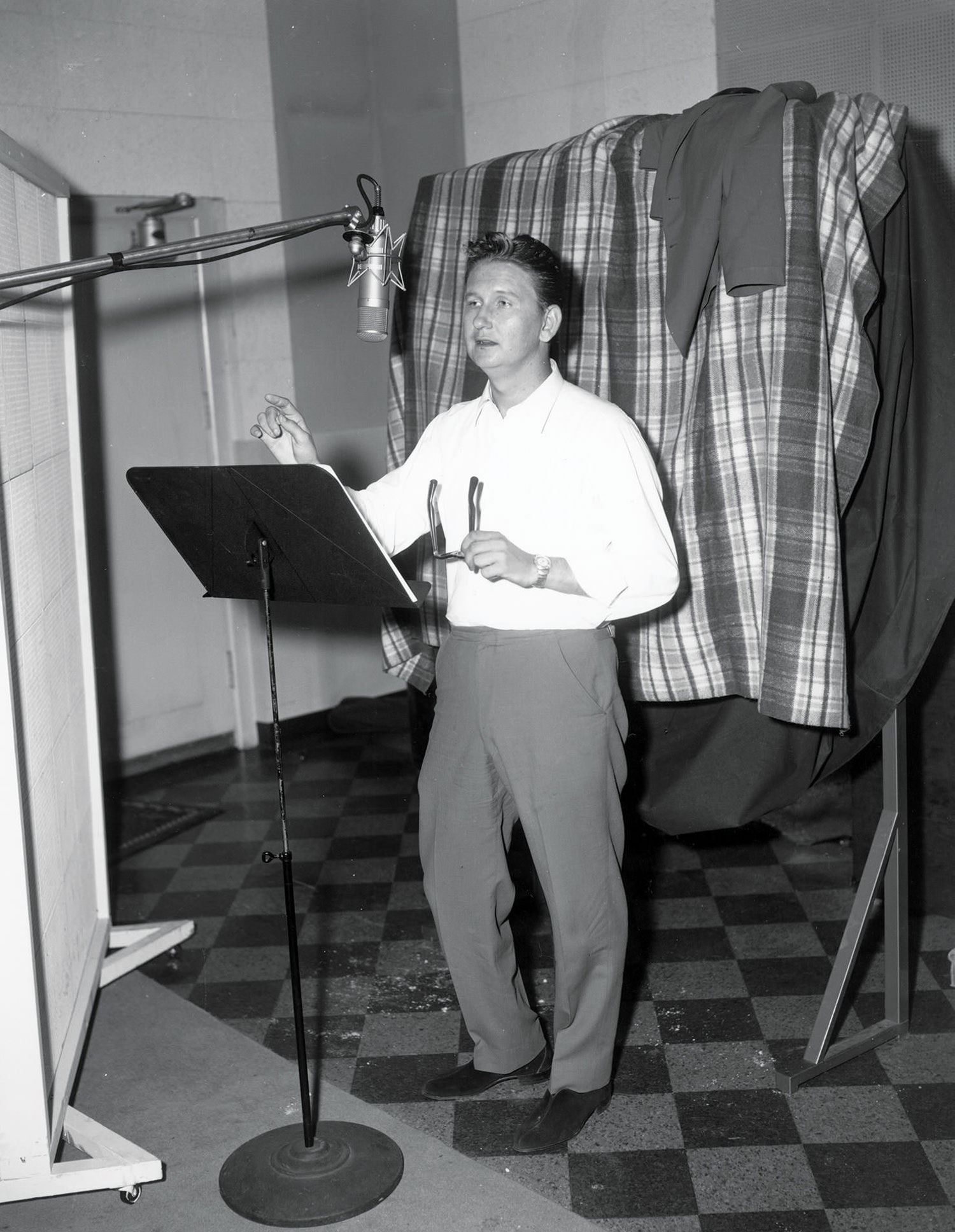Feeling weary, in and out of the studio? Limiting stressors and establishing healthy habits can keep your body in tune and help you beat fatigue.
If you're reading this, odds are you're not part of the 8-5-workday world. Quite likely, you put in at least the occasional 12- or 14-hour day in the studio, breaking only for a quick meal. You might return home, exhausted, long after most people have called it a day, then collapse into bed until it's time to do it all over again. Considering the erratic work schedules and unorthodox career demands, it's no wonder engineers and musicians can be especially prone to fatigue. Despite all this, there are some simple things you can do to avoid feeling wiped out, enabling you to work, rest, rejuvenate and live better.
The Physiology of Fatigue
If you ever feel amped up when you're trying to sleep, or tired when you're trying to work, out- of-sync hormone response pathways in the body may be to blame. Like a song, the body has an original rhythm that can be manipulated by external influences. That rhythm consists of a wake- sleep cycle aligned with the earth's day-night cycle. Some external challenges are healthy and allow the body to grow and evolve, but excessive stress demands can disrupt your body's natural rhythm, leaving you weary and sluggish.
The body's natural energy rhythm is regulated primarily by the pineal gland and the adrenal glands. The pineal gland, a pea-sized gland located in the middle of our head, produces the hormone melatonin. Daylight suppresses melatonin and the body's perception of darkness at nighttime increases melatonin, inducing the sleep that your body needs to rest and rejuvenate. The adrenals, walnut-sized glands that sit above the kidneys, secrete the hormone cortisol to wake us up in the morning and sustain our energy throughout the day. Cortisol decreases at night, allowing us to rest. Fatigue results when this daily body-clock rhythm is offbeat, like a bad drummer.
The adrenals are also the cornerstones of the body's stress response. Stress triggers the adrenals to secrete increased amounts of hormones that make us more alert. These hormone levels typically return to normal after the stressful event has passed. Stressors of all kinds (physical, mental, emotional or spiritual) cause this same cascade of events in the body. Excessive external stressors, like those listed below, may overtax these hormones and the nervous system, resulting in fatigue.
Fatigue Inducing Stressors:
Physical
illness (especially if chronic or severe), hormone problems, poor physical condition, excess weight
Diet
poor diet, sporadic dietary habits, meals at irregular times, food allergies, sugar, caffeine
Lifestyle
stress (constant stress, long periods of stress, severe stressful events), overexertion (overwork, driving self to exhaustion), lack of exercise, inadequate sleep, irregular sleep times, emotional or psychological problems, especially depression, unhappy relationships
Environmental
pollutants, heavy metals, alcohol or drug abuse, artificial lights, excessive noise, some medications
Each of us has a finite amount of energy to draw upon to keep the body functioning well and to do our work. Energy input must balance energy output. To replenish energy, the body needs air, water, sunlight, proper nutrition, sleep and inspiring work and social relationships.
10 Tips to beat Fatigue
The best way to combat fatigue is to address the cause. Structuring a lifestyle with a daily rhythm, decreasing stressors, enhancing the body's ability to cope with stress and providing the body with everything it needs can help you beat fatigue, in the studio and beyond. Easier said than done, perhaps, but well worth the effort.
1. Establish a Routine
The human body operates on a daily rhythm aligned with the cycle of day and night. Maintaining a consistent daily routine of eating and sleeping helps the body know what to do when. Pick the most common times you sleep and eat and stick to that pattern as much as possible. This will balance your cortisol and blood sugar levels, helping you maintain consistent energy.
2. Sleep Better
Sleep is the body's main mechanism for rejuvenation, repair and healing. Getting adequate, good-quality sleep leads to greater efficiency and productivity at work. You can optimize your sleep by taking the time out to do it, sleeping at a similar time each day and limiting your use of stimulants to the early part of your workday. Think you don't have time to get adequate shut-eye? Keep in mind that you're likely to accomplish more in less time when you're well rested.
3. Get Outdoors
Bright outdoor light during the day helps maintain wakefulness. At least 20 minutes a day outside is recommended, even if the sky is overcast. A walk outside during a break from recording is a good place to start. (No whining about the rain!) On the flip side, dim lights nearing bedtime and darkness during sleep time increases the body's production of melatonin, a hormone that promotes deep rest and sleep.
4. Moderate Caffeine
Caffeine gives us quick jolts of energy by increasing our body's output of the energizer hormone known as cortisol. This temporary high eventually leads to a dip in cortisol levels, leaving the body more fatigued. Consider moderating your caffeine intake. Teas are best, especially green tea. If coffee is a must, then try to limit your intake to one or two cups a day. Also, limiting caffeine intake to the early part of your day allows the body to rest and rejuvenate more deeply during sleep time.
5. Breathe, Breathe, Breathe
This is an often underestimated, overlooked energy source. The average adult takes an estimated 17,000-30,000 breaths per day. We breathe more than we sleep or eat. The body depends on adequate oxygen in order to produce ATP, the body's storage form of energy. A pause for three deep breaths when fatigued can be deeply energizing.
6. Eat for Sustained Energy
Eating a healthy balance of protein, carbohydrates and healthy fats throughout the day is essential for sustained energy. Carbohydrates can cause a rapid spike in blood sugar levels, followed by a dramatic dip experienced as an energy slump. Adding protein and "good" fats to a meal or snack helps temper this effect: eating peanut butter or a cup of lowfat yogurt with your toast, for example, or a handful of mixed nuts with fresh fruit as an afternoon snack. Limit refined carbohydrates, including sugar and white bread, which lack significant nutrients. (Stay tuned for a forthcoming article on eating well in the studio.)
7. Try Meditation
Whether you're plagued by that song you heard a hundred times while mixing or preoccupied thinking about everything you need to do the next day, a little meditation can go a long way toward helping you wind down. Check out the free, guided audio meditation Podcasts offered through iTunes to find one that helps quiet your mind for relaxation and better sleep, in as little as ten minutes a day.
8. Start the Day with Bs
Taking a daily B-complex vitamin formula in the morning is a great way to jump-start your nervous system and keep your mind humming throughout the day. B vitamins are best taken early in the day, as they may keep you awake if taken within a few hours of bedtime. (And don't forget a daily multivitamin and mineral supplement — think of it as inexpensive health insurance.)
9. Stretch and Energize with Yoga
Upward-facing dog and downward-facing dog are simple yoga poses that fight fatigue by boosting energy, says yoga teacher Annie Adamson, owner of Yoga Union (www.yogaunioncwc.com) in Portland, Oregon. These poses also stretch the low back and hip flexors, strengthening abdominal muscles and stretching and strengthening wrists. (Roll a yoga mat out on the floor for a good grip.) For additional benefits, check out a yoga class or two at a local studio; most offer introductory specials.
1. Start in down dog position (barefoot).
2. Take three long, slow breaths.
3. On your next inhale, come up on your toes and press your upper body forward as you lower your hips down, coming into up dog with toes curled under.
4. Exhale, lift your hips up and back and come back into down dog.
5. Inhale, lower your hips and press your upper body forward, coming into up dog.
6. Feel your abdominal muscles stretch as you come forward into up dog, and strengthen as they pull you back into down dog.
7. Repeat 8-12 times.
10. Look to Natural Medicine
Traditionally, natural medicines (including herbal and homeopathic preparations) have been used to combat fatigue. Examples include gotu kola, Siberian ginseng, licorice, Rhodiola rosea, devil's club, astragalus, ashwaganda and others. These are all herbal adaptogens, meaning that they help us adapt to stress. Herbal and homeopathic medicines are best prescribed on an individual basis; consult a naturopathic doctor to determine what's right for you. (Visit www.naturopathic.org and click on "Find an ND" to locate a naturopathic physician in your area.)
Of course, feeling inspired and satisfied by your work and about life, in general, is incredibly energizing, even when you are required to put in long days — which begs the question: Do you love what you're doing? Common sense goes a long way, too; if you drink five beers a day and live on Taco Bell fare, you've got no one to blame for fatigue but yourself. In other words, treat your body well and it will return the favor.





